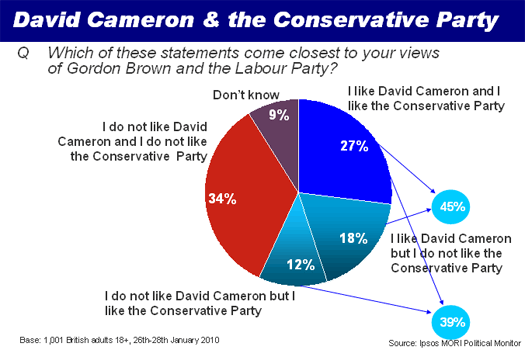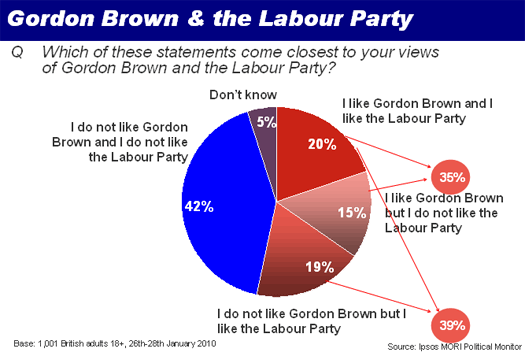Worcester's Weblog: Like him, like his party
A week is a long time in politics, a month is decades, two months is eons, and three months is an eternity. We have under two months until the May 6th election is called, and under three months until the political day of reckoning.
As I type, the Brown bullying media storm rages; last week it was the Brown interview. Last week the media and folks I meet were asking what the public's reaction to his TV interview would be, now questions are about how the allegations in Andrew Rawnsley's book, the Mandelson denials and the Pratt reprisals will impact on the election outcome. As my wife says, `ferrets in a sack'.
Both events will have their impact, mostly short term, and most of the noise is being heard from the proponents and opponents, and most won't be recalled by the time we've been put through the election wringer.
So what does matter? Issues and parties' policies dealing with the issues, and I'll be dealing with those in the days to come. But to marginal voters in both senses of the word, floating voters in marginal constituencies, image outpoints issues.
There are four reasons issues don't bite: first an issue has to be sufficiently important to the prospective voters to get them to switch from one party to another; second, they have to discern party differences on the issues they think will make up their mind which party to vote for; third, they have to believe that if elected (leaving out the LibDems and other smaller parties) the party when elected can do what they promise about the issue they care about, and fourth, that they will do what they promise.
So how do they make up their mind, if they are to vote? Image, Dr. Watson, image. Call it what you want, it's how the floating voters make up their mind to vote, and which party they will vote for. And it's a combination of leader image and party image, whether they think the leader is capable, and if they understand the problems facing the country and a host of other less important image attributes, such as being a nice guy or not, or more in touch with public opinion than the other guy. And whether they think the party has a good team of leaders and listens to the views of ordinary people.
There are several ways we measure this. In January, in our poll published in the Mirror, we highlighted the `like him' factor, asking a two by two question, as replicated in the two graphics. Just under four people in ten, 39%, like Labour, and exactly the same, 39% say they like the Tories. Most don't much like either.
But while just over a third of people say they like Gordon Brown, 35%, some 45% say they like David Cameron, a ten point lead for the Conservative Leader. In January, the average Tory share of the 13 polls taken was 40%, the average Labour share was 30%. Fancy that.
It's the voting intention figures that hit the headlines, mostly quoting the lead, thus doubling the statistical reliability of the findings and confusing their readers. But that's the easy way for the headline to be written to fit, and the pundit to lead his or her story, and nothing I've been able to do in preaching `watch the share, not the lead' has made a dent in the use of the lead in the political horse race, just as the commentator at the racetrack says that the one horse is three lengths ahead.
The difference is that in elections, if the third party, or parties, go up or down and the second party stays the same, the lead shifts and, almost inevitably is mis-reported, if not by the political writer, almost certainly by the headline writer, such as the hyped headline over last week's Sunday Times, "Tories offer bank shares for all as poll lead dives", when what happened was that YouGov's Conservative share was down one point and Labour went up two points while the LibDems were down one point, not a statistically significant figure among them.
As always, happy to hear from interested readers who want to really understand how polls work, and what they mean at the time they are taken. Sir Robert Worcester is the Founder of MORI





